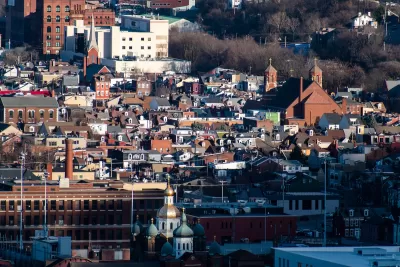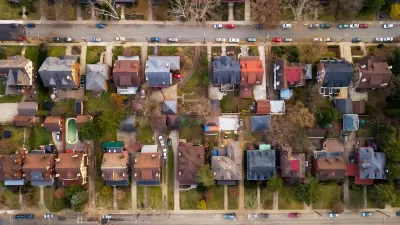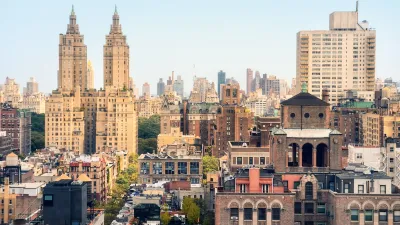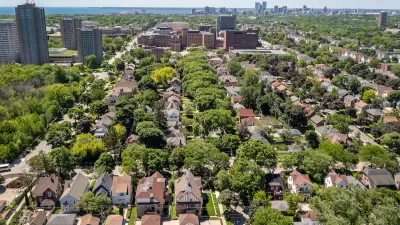The mayor’s plan includes legalizing ADUs in single-family neighborhoods, eliminating parking requirements, and adding new affordability requirements to buildings with over 20 units.

Pittsburgh Mayor Ed Gainey is proposing new legislation to address the city’s housing demand that includes a plan to legalize accessory dwelling units (ADUs) and reduce minimum parking requirements, among other changes.
As Ann Belser explains in Next Pittsburgh, the package would also eliminate lot size requirements for apartment buildings and create new affordability requirements for larger buildings. “The proposed ordinance regarding minimum lot sizes would eliminate the required lot sizes per unit in areas zoned for residential very high density and reduce the lot size requirements for areas zoned residential high and moderate density,” Belser adds.
“As a whole, this package of zoning changes will make it easier and less expensive to build large projects and additional living spaces for our kids and aging parents,” said Councilmember Barb Warwick. Pittsburgh has been making other changes to zoning codes, including permitting personal care homes and shelters in every residential district and increasing the maximum occupancy. Meanwhile, a state law will exempt or defer property tax increases caused by rising neighborhood values.
The proposal also addresses transportation. “To promote travel by mass transit, the administration has proposed creating new transit- oriented districts, which provide tax incentives for developers along the East Busway at Herron Avenue, near South Hills Junction and in Sheridan near the West Busway.”
FULL STORY: Pittsburgh develops plan to address housing shortage

Alabama: Trump Terminates Settlements for Black Communities Harmed By Raw Sewage
Trump deemed the landmark civil rights agreement “illegal DEI and environmental justice policy.”

Planetizen Federal Action Tracker
A weekly monitor of how Trump’s orders and actions are impacting planners and planning in America.

The 120 Year Old Tiny Home Villages That Sheltered San Francisco’s Earthquake Refugees
More than a century ago, San Francisco mobilized to house thousands of residents displaced by the 1906 earthquake. Could their strategy offer a model for the present?

Ken Jennings Launches Transit Web Series
The Jeopardy champ wants you to ride public transit.

BLM To Rescind Public Lands Rule
The change will downgrade conservation, once again putting federal land at risk for mining and other extractive uses.

Indy Neighborhood Group Builds Temporary Multi-Use Path
Community members, aided in part by funding from the city, repurposed a vehicle lane to create a protected bike and pedestrian path for the summer season.
Urban Design for Planners 1: Software Tools
This six-course series explores essential urban design concepts using open source software and equips planners with the tools they need to participate fully in the urban design process.
Planning for Universal Design
Learn the tools for implementing Universal Design in planning regulations.
Clanton & Associates, Inc.
Jessamine County Fiscal Court
Institute for Housing and Urban Development Studies (IHS)
City of Grandview
Harvard GSD Executive Education
Toledo-Lucas County Plan Commissions
Salt Lake City
NYU Wagner Graduate School of Public Service





























